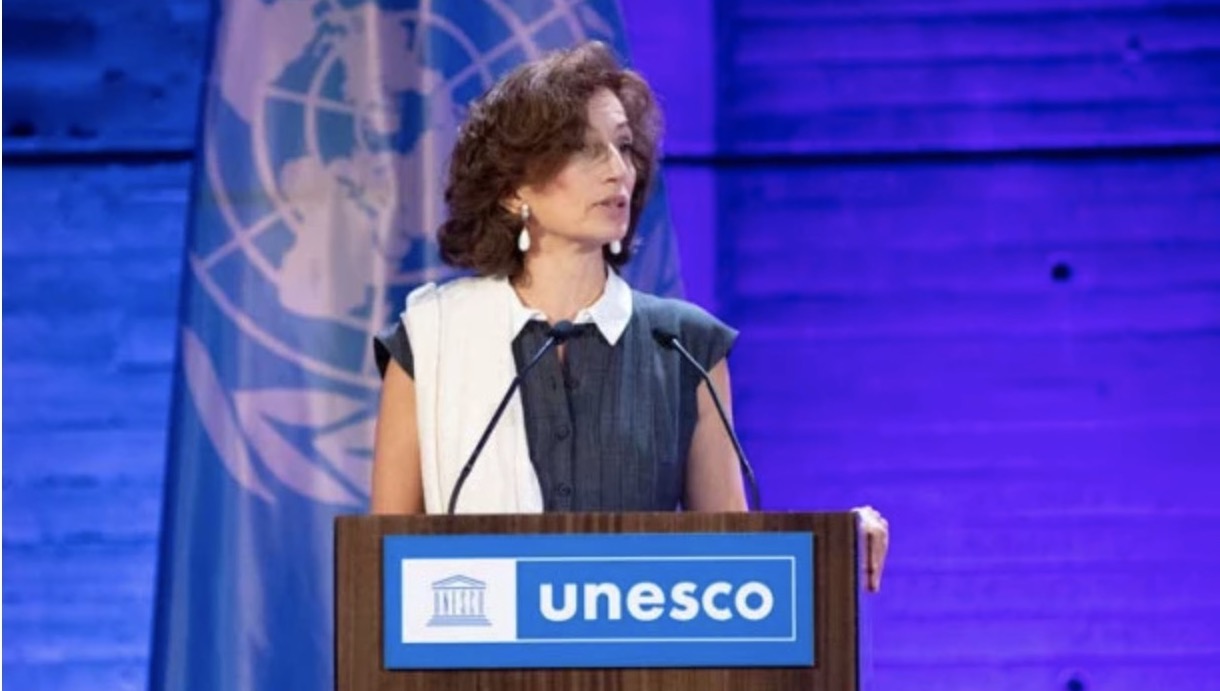Audrey Azoulay, head of UNESCO, gathered representatives of the Organisation’s 193 Member States this week to announce that the United States of America had officially notified her of its decision to rejoin, in July 2023, based on a concrete financing plan. In a letter sent to the Director-General, the U.S. Department of State welcomed how UNESCO had addressed in recent years emerging challenges, modernised its management, and reduced political tensions.
New initiatives have been launched enabling UNESCO to fully tackle contemporary challenges – such as the ethics of artificial intelligence or the protection of the ocean – while emblematic new field campaigns – including the reconstruction of the old city of Mosul, Iraq – have allowed the Organization to reconnect with its historical ambitions. Lastly, administrative reforms, rolled out since 2018, have made UNESCO more efficient and financially sound.
The return of the United States was made possible by the agreement reached by Congress in December 2022 authorising financial contributions to UNESCO. The U.S. suspended its contributions in 2011 due to domestic legislation before legally notifying UNESCO of its decision to withdraw on 12 October 2017.
The proposed financing plan must now be submitted to the General Conference of UNESCO Member States for approval. Some Member States have requested that an extraordinary session be held soon so a decision can be made.
Elected as the head of UNESCO in November 2017, Audrey Azoulay led the mediations that made it possible to reduce political tensions and find consensus on the most sensitive topics, such as the Middle East.
UNESCO stands for the United Nations Educational, Scientific and Cultural Organization. It is a specialised agency of the United Nations system, established in 1945. UNESCO’s primary goal is to promote international collaboration in the fields of education, science, culture, and communication to contribute to peace and sustainable development.
The Organisation works to achieve its objectives through various programs and activities. Some of the key areas of focus for UNESCO include:
Education: UNESCO aims to provide quality education for all, promote inclusive and equitable education systems, and support efforts to eradicate illiteracy worldwide.
Science: UNESCO promotes scientific research, fosters international scientific cooperation, and addresses global challenges through science-based solutions.
Culture: UNESCO works to safeguard and promote cultural diversity, protect cultural heritage sites and practices, and encourage intercultural dialogue.
Communication and Information: UNESCO promotes freedom of expression, media development, access to information, and the preservation of documentary heritage.
UNESCO is known for designating and preserving World Heritage Sites, which are cultural or natural sites of outstanding universal value. It also leads various initiatives to promote cultural understanding, gender equality in education, and the protection of intangible cultural heritage.
Member states of the United Nations can become members of UNESCO, and currently, there are 193 member countries. The Organisation operates through its headquarters in Paris, France, and has field offices and institutes worldwide to carry out its mission at regional and national levels.
Photo Courtesy UNESCO

